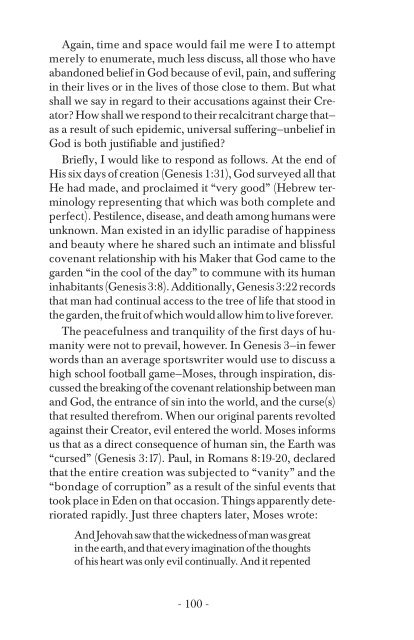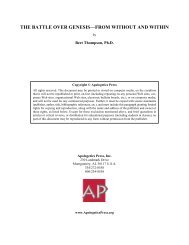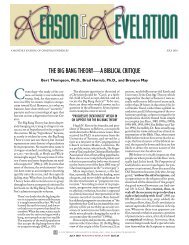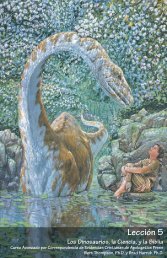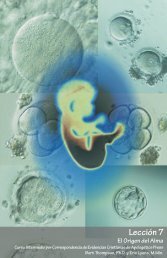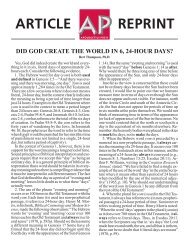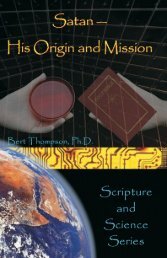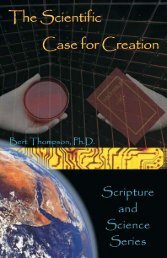The Many Faces, and Causes, of Unbelief - Apologetics Press
The Many Faces, and Causes, of Unbelief - Apologetics Press
The Many Faces, and Causes, of Unbelief - Apologetics Press
You also want an ePaper? Increase the reach of your titles
YUMPU automatically turns print PDFs into web optimized ePapers that Google loves.
Again, time <strong>and</strong> space would fail me were I to attempt<br />
merely to enumerate, much less discuss, all those who have<br />
ab<strong>and</strong>oned belief in God because <strong>of</strong> evil, pain, <strong>and</strong> suffering<br />
in their lives or in the lives <strong>of</strong> those close to them. But what<br />
shall we say in regard to their accusations against their Creator?<br />
How shall we respond to their recalcitrant charge that—<br />
as a result <strong>of</strong> such epidemic, universal suffering—unbelief in<br />
God is both justifiable <strong>and</strong> justified?<br />
Briefly, I would like to respond as follows. At the end <strong>of</strong><br />
His six days <strong>of</strong> creation (Genesis 1:31), God surveyed all that<br />
He had made, <strong>and</strong> proclaimed it “very good” (Hebrew terminology<br />
representing that which was both complete <strong>and</strong><br />
perfect). Pestilence, disease, <strong>and</strong> death among humans were<br />
unknown. Man existed in an idyllic paradise <strong>of</strong> happiness<br />
<strong>and</strong> beauty where he shared such an intimate <strong>and</strong> blissful<br />
covenant relationship with his Maker that God came to the<br />
garden “in the cool <strong>of</strong> the day” to commune with its human<br />
inhabitants (Genesis 3:8). Additionally, Genesis 3:22 records<br />
that man had continual access to the tree <strong>of</strong> life that stood in<br />
the garden, the fruit <strong>of</strong> which would allow him to live forever.<br />
<strong>The</strong> peacefulness <strong>and</strong> tranquility <strong>of</strong> the first days <strong>of</strong> humanity<br />
were not to prevail, however. In Genesis 3—in fewer<br />
words than an average sportswriter would use to discuss a<br />
high school football game—Moses, through inspiration, discussed<br />
the breaking <strong>of</strong> the covenant relationship between man<br />
<strong>and</strong> God, the entrance <strong>of</strong> sin into the world, <strong>and</strong> the curse(s)<br />
that resulted therefrom. When our original parents revolted<br />
against their Creator, evil entered the world. Moses informs<br />
us that as a direct consequence <strong>of</strong> human sin, the Earth was<br />
“cursed” (Genesis 3:17). Paul, in Romans 8:19-20, declared<br />
that the entire creation was subjected to “vanity” <strong>and</strong> the<br />
“bondage <strong>of</strong> corruption” as a result <strong>of</strong> the sinful events that<br />
took place in Eden on that occasion. Things apparently deteriorated<br />
rapidly. Just three chapters later, Moses wrote:<br />
And Jehovah saw that the wickedness <strong>of</strong> man was great<br />
in the earth, <strong>and</strong> that every imagination <strong>of</strong> the thoughts<br />
<strong>of</strong> his heart was only evil continually. And it repented<br />
- 100


